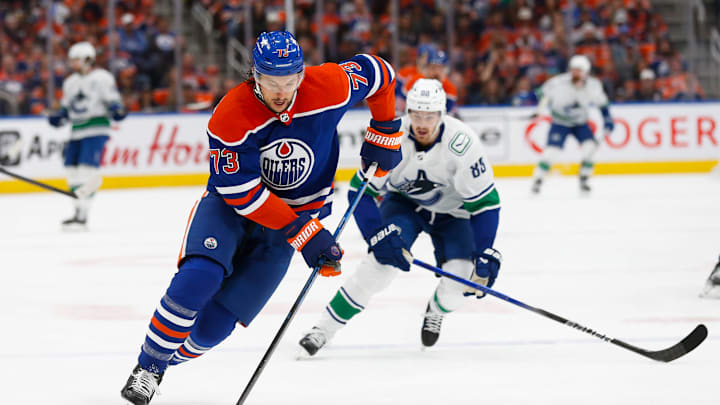Once you get outside the actual season, the beginning of free agency is one of the most anticipated dates on the annual NHL calendar for fans. And after one of the best seasons in Canucks history -- with the third-most ever regular season points -- this year's free agency period was particularly of interest to hockey fans in Vancouver.
As per Global News, day one of NHL free agency on Monday turned out to be mayhem, with teams combining to surpass a staggering $1 billion in spending. Some of the most noteworthy deals included Sam Reinhart remaining in Florida for eight years and $69 million, Steven Stamkos going to Nashville for four years and $32 million, and Brandon Montour heading to Seattle for seven years and $50 million.
In respect of the Canucks specifically, their biggest addition was Jake DeBrusk for seven years and $38.5 million. We've written in detail about DeBrusk's signing here, but in summary he's an intriguing, hard-working, quality two-way player who will help boost the top-six.
The question is, how do people perceive free agency in general for the Canucks up to this point? Here's a breakdown of our early returns on how the organisation has performed thus far, with four takeaways:
1) Canucks avoid disaster with Lindholm
It's always been all but known, but now it's official - Elias Lindholm will not be back with the Canucks next season. As per TSN's Chris Johnston, he has signed a seven-year deal with the Boston Bruins, which carries an annual average salary of $7.75 million.
There was some speculation from Sportsnet's Elliotte Friedman that the Canucks would have been prepared to go as high as 7 x 7 to re-sign Lindholm, but even that would have been too much for him. He's not worth as much as he thinks he is, and the Canucks have well and truly dodged a bullet with this one.
Don't get me wrong, we totally understand why the 2013 fifth overall draft pick would want to maximise his earnings while he still can. However, this is a player that disappointed so much after arriving in Vancouver via a November trade, that there was talk of moving him on before the March 8 deadline!
We appreciate that Lindholm stepped up his game during the playoffs and showed more of what he's capable of, but he just didn't do what was required on a consistent enough basis, to warrant a long-term deal in Vancouver. This is not to say he isn't capable of excelling in Boston, but as far as we're concerned, they've paid too much for the forward and the Canucks are better off without him.
